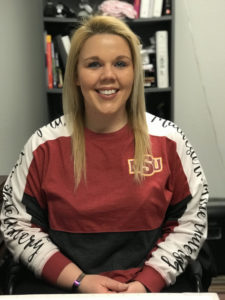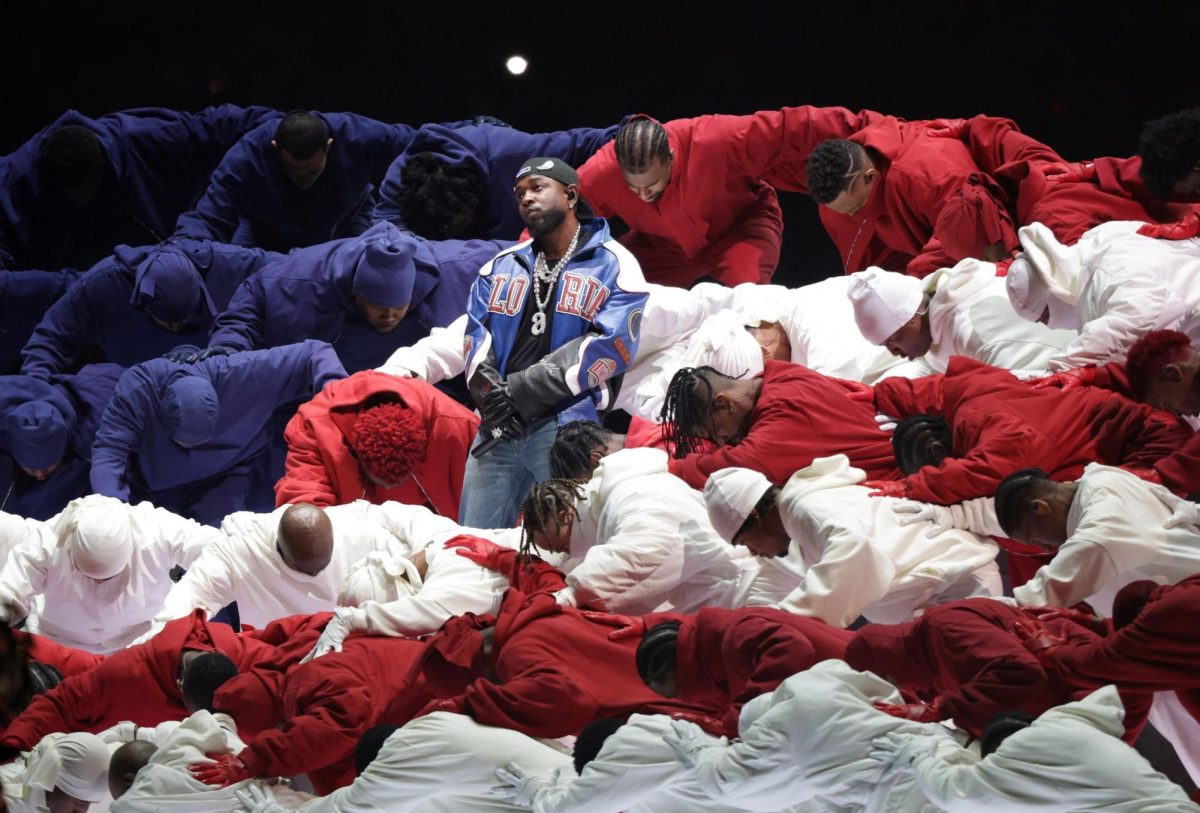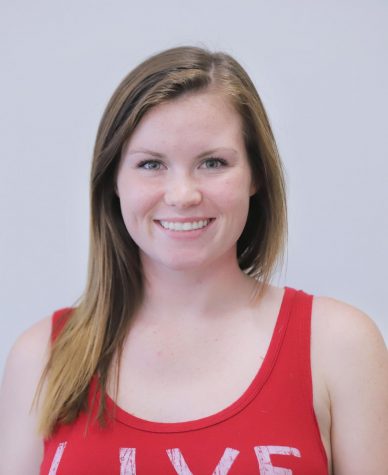
She does everything. If any athlete on the volleyball or softball team is sick, she directs the girls where to go. Sprains, concussions, injuries of all kinds. She tends to them all, she has to.
Between the hours spent as an assistant athletic trainer on campus working with the softball and volleyball teams for two years, Samantha Carter, instructor of athletic training and exercise physiology, spends every summer performing athletic training duties for the United States softball team for the past three years.
Through her time as an athletic trainer, Carter said she’s been able to travel across the world doing what she loves with the people she enjoys. Her time in Tokoyo, Japan, with the U.S. softball team and Buenos Aires, Argentina, with the university team, have further solidified her passion for her job.
“I have the best teams and the best coaches,” Carter said. ” I may be biased because every athletic trainer says that about their [teams], but my favorite part is getting to know my team and my coaches and having that strong relationship [so] that we can work well together.”
According to Carter, she always wanted to travel, and being an athletic trainer gave her the opportunity to experience of working in other countries was different from anything and everything she had ever seen, especially in her field of work.
While the resources are not as readily available in other countries as they are here in America, Carter said she is grateful for what she has. The experience of working in countries outside of the U.S. has helped her grow in her career because with less resources she has learned to think on the go.
“Here [at MSU] we have an entire athletic training room with everything I need,” Carter said. “I have to make sure that I have every single thing that I could think of that may come up.”
When Carter started her career on campus, she came late into the volleyball season, but on the first day she was welcomed with open arms and everyone made her feel like she was part of their family which relieved any nerves she had about joining in late, she said.
After going into her second year in the program, Carter said teaching has helped her grow as a young professional, and she has acquired a new level of respect for college professors.
“It takes a lot of work,” Carter said. “I have to make hours for what I’m going to do in class, then I have hours for seeing my athletes. I definitely [prefer] teaching more of a one-on-one style, but teaching in a class is also rewarding because everyone sees things differently and I enjoy hearing how [students] feel about different topics.”
Working with the U.S. softball team and being an athletic trainer on campus has given Carter the best of both worlds she said. Working with the U.S. team in the summer helps her keep her skills well practiced and keeps her research up to date, so when she returns to campus in August, she can easily jump back into her routine. With her 10 month contract with Midwestern, Carter is able to spend her two off months working with the U.S. softball team.
Her short term goal is to get the opportunity to go to the upcoming 2020 Olympic games with the U.S. softball team, but Carter said her ultimate goal within her career is to work at the Olympic Training Center in Colorado.
After suffering a back injury her junior basketball season, Carter said she began to consider athletic training as a career for her. Months of surgery, rehab and therapy made her realize what all athletic trainers do, and though she could no longer play sports, she said it was a way she could remain involved.
“I was still technically a part of the team just in a different aspect,” Carter said. “My senior year I finished my bachelor’s in kinesiology and applied to an entry level master’s program of athletic training.”
Although she spends most of her time in the field or court-side, Carter said her time in the classroom prepared her for the success she mow feels within her career.
“Listen to as much as you can. If you see someone [an athletic trainer] doing an evaluation [on an athlete], go up and listen, ask questions, figure out what they’re doing, why they’re doing it,” Carter said. “The more questions you ask, the better you are going to be as a professional.”









